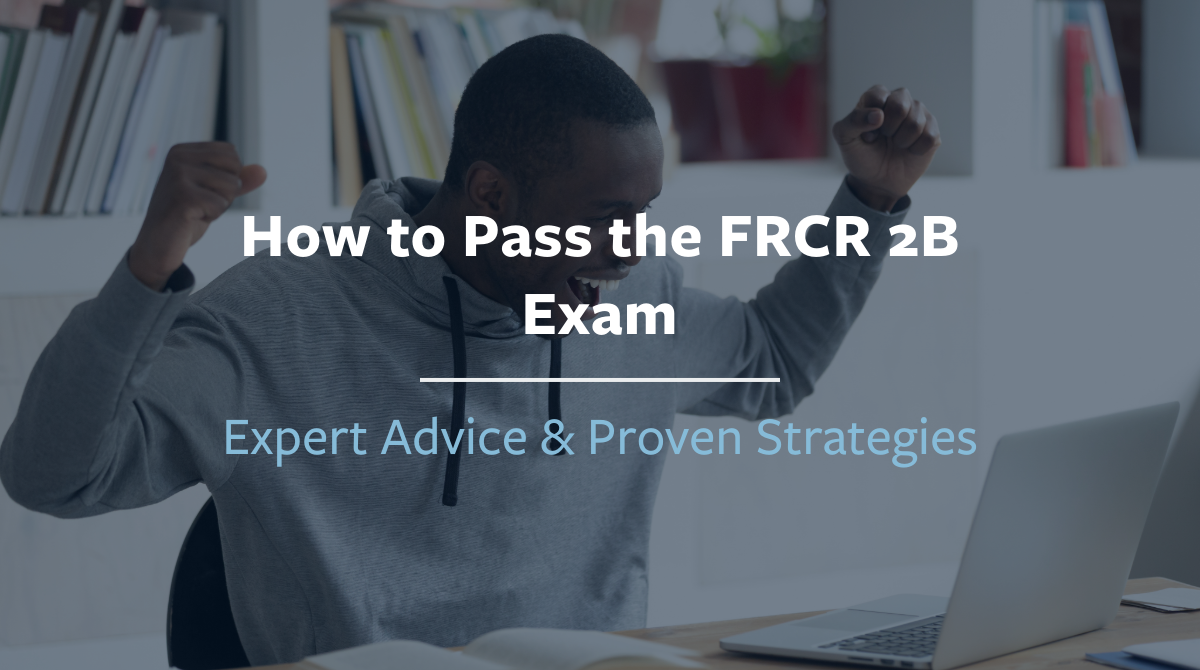
How to Pass the FRCR 2B Exam

Revise Radiology
April 16th, 2025
The Final FRCR Part 2B examination is a pivotal step in a radiologist's career, assessing not only knowledge but also practical skills and decision-making abilities. Success requires meticulous preparation and an awareness of common pitfalls. Here are some frequent mistakes candidates make and strategies to avoid them:
🧠 Understand the Exam Structure
As of June 2025, the FRCR Part 2B exam comprises three components:
Short Cases: Replaces the previous Rapid Reporting module. Candidates interpret a series of imaging cases, focusing on identifying key findings and providing concise diagnoses.
Long Cases: Six cases requiring detailed reports within 75 minutes.
Oral Examination (Viva): Two 30-minute sessions with pairs of examiners assessing various subspecialties.
Familiarity with the exam format is crucial. The Royal College of Radiologists provides detailed guidance notes to help candidates understand the expectations for each component.
📅 Create a Structured Study Plan
Allocate at least 3 to 4 months for dedicated preparation. If you're working full-time, consider extending this to 6 months.Your study plan should encompass:
Short Case Practice: Aim for 2–3 sets daily, increasing to 4–5 as the exam approaches.
Long Case Analysis: Practice one set daily, focusing on structured reporting.
Viva Sessions: Engage in regular mock vivas with peers or mentors to build confidence.
Consistency and regular review are key to reinforcing knowledge and building exam readiness.
📚 Utilize High-Quality Resources
Selecting the right study materials can significantly impact your preparation. Recommended resources include:
Books:
Accident and Emergency Radiology: A Survival Guide by Nigel Raby
Final FRCR Part B Viva: 100 Cases and Revision Notes by Richard White et al.
Long Cases for the Final FRCR 2B by Rebecca Hanlon
Top 3 Differentials in Radiology by William O'Brien
Aunt Minnie's Atlas and Imaging-Specific Diagnosis by Thomas Pope
Online Platforms:
Revise Radiology: Provides question banks, mock exams, and structured study plans.
Engaging with these resources can enhance your understanding and provide diverse case exposures.
🏃♂️ Master Short Cases
The Short Case module assesses your ability to quickly and accurately interpret a variety of imaging studies. Strategies to excel include:
Systematic Approach: Develop a consistent method for reviewing images to ensure no findings are overlooked.
Avoid Overcalling: Only mark an image as abnormal if you're certain; overcalling can negatively impact your score.
Regular Practice: Utilize online short case sets to build speed and accuracy.
Remember, each abnormal case typically contains a single significant finding; focus on identifying that.
📝 Approach Long Cases Methodically
Long cases assess your ability to interpret complex imaging and provide structured reports. Tips for success:
Structured Reporting: Use a consistent format, including clinical details, imaging findings, interpretation, and recommendations.
Time Management: Allocate approximately 12 minutes per case to ensure all are completed within the time frame.
Practice Typing: Since the exam is computer-based, practice typing your reports to improve speed and clarity.
Regularly reviewing and analyzing past cases can help identify common pitfalls and improve diagnostic accuracy.
🗣️ Excel in the Viva Examination
The viva assesses your ability to articulate findings and reasoning under pressure. To prepare:
Mock Sessions: Engage in practice vivas with colleagues to simulate exam conditions.
Clear Communication: Practice explaining your thought process clearly and concisely.
Stay Calm: Develop strategies to manage anxiety, such as deep breathing or mindfulness techniques.
Familiarity with a wide range of cases and regular practice can build confidence and improve performance.
🧑🤝🧑 Join Study Groups
Collaborating with peers can provide diverse perspectives and enhance learning. Benefits include:
Shared Resources: Exchange study materials and case discussions.
Peer Feedback: Receive constructive critiques to improve your approach.
Motivation: Maintain accountability and motivation through group study sessions.
Platforms like Telegram and WhatsApp host FRCR-focused study groups that can be valuable resources.
🧘♀️ Prioritize Well-being
Maintaining physical and mental health is essential during preparation:
Regular Breaks: Incorporate short breaks to prevent burnout.
